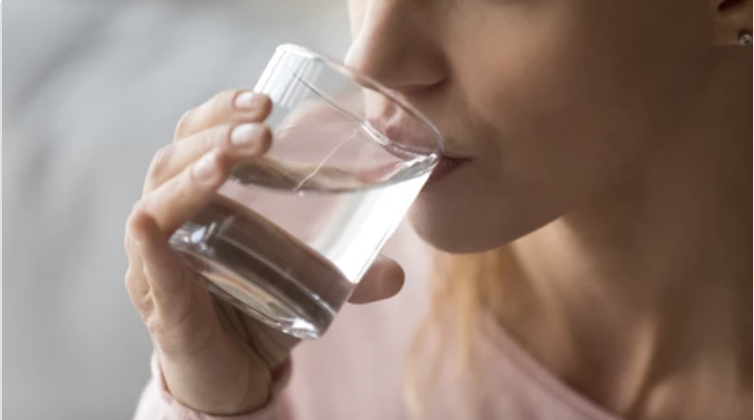The Effect Of Poor Hydration On Aging
/Going into this year, I’m doubling down on my primary health goals, which are to stay disease-free and alive as long as I can. That means I have to keep my body working well, and of course, that means staying hydrated. I’ve written numerous posts about the importance of staying hydrated and why it matters for bodily functions—but did you know it also correlates directly to aging? A recent study showed the connection, and I felt the need to share this info with all of my friends over 50 (and under 50—we don’t gatekeep health here).
On January 2, 2023, the National Institutes of Health published a study about lifelong hydration and the impact it has on our overall health. We’ve long known the short-term benefits of staying hydrated—from helping us ward off headaches and migraines, regulating our body temperature, aiding our digestion, ridding our body of toxins, and more—but this study underscored the long-term effects. Here are the two major takeaways.
Drinking enough water is associated with lower disease risk.
Unfortunately, we all know someone who has suffered or currently suffers from a serious, life-threatening disease. (We don’t have to get into those statistics, they’re honestly too much to bear.) Thankfully, according to this study, staying hydrated has been shown to lower the risk of developing chronic diseases. Participants in the study who were considered to have a higher faster-aging risk (they had higher serum sodium levels and lower hydration levels), had a higher risk for chronic diseases, including heart failure, stroke, atrial fibrillation, peripheral artery disease, chronic lung disease, diabetes, AND dementia, by as much as 64 percent. But hey, drinking enough water daily, and over the course of your life, lowered that risk. As someone who is always looking for more preventative measures to take against disease, you can bet I’m upping my water intake ASAP.
Drinking enough water slows down aging and prolongs longevity.
The study, which was performed over the course of 25 years, also found that water restriction led to people becoming “biologically older,” meaning their health markers mimic that of a person older than the participant (aka older than their actual, chronological age). Also, because they were at a higher risk for developing chronic diseases, they died at a younger age.
“This study adds observational evidence that reinforces the potential long-term benefits of improved hydration on reductions in long-term health outcomes, including mortality,” said Dr. Howard Sesso, an associate professor of medicine at Harvard Medical School and associate epidemiologist at Brigham and Women’s Hospital in Boston, to CNN health.
According to several other studies, about half of people worldwide are not getting enough water every day—which is not good news, given that more than 50 percent of the human body is made of water. In order to slow down the aging process, lower disease risk, and live longer, hydration is imperative. “On the global level, this can have a big impact,” said Natalia Dmitrieva, a researcher in the Laboratory of Cardiovascular Regenerative Medicine at the National Heart, Lung and Blood Institute, a division of NIH. “Decreased body water content is the most common factor that increases serum sodium, which is why the results suggest that staying well hydrated may slow down the aging process and prevent or delay chronic disease.”
If you’re thinking to yourself “I definitely don’t drink enough water,” you’re in luck! I’ve got tips for you! Check out my blog posts on hydration—all of which are packed with practical, doable advice for increasing your water intake without making it a hassle.
Got Water? Why Hydration Is The Key To Better Health, Weight Loss, & Slower Aging
How To ACTUALLY Stay Hydrated: 3 Things You Can Do Right Now!
In the meantime, I hope you’ll join my newly launched Pure Joy Squad private membership group! We’re accepting new founding members for a limited time—you can find more information on it HERE!
Xo,
Renata

